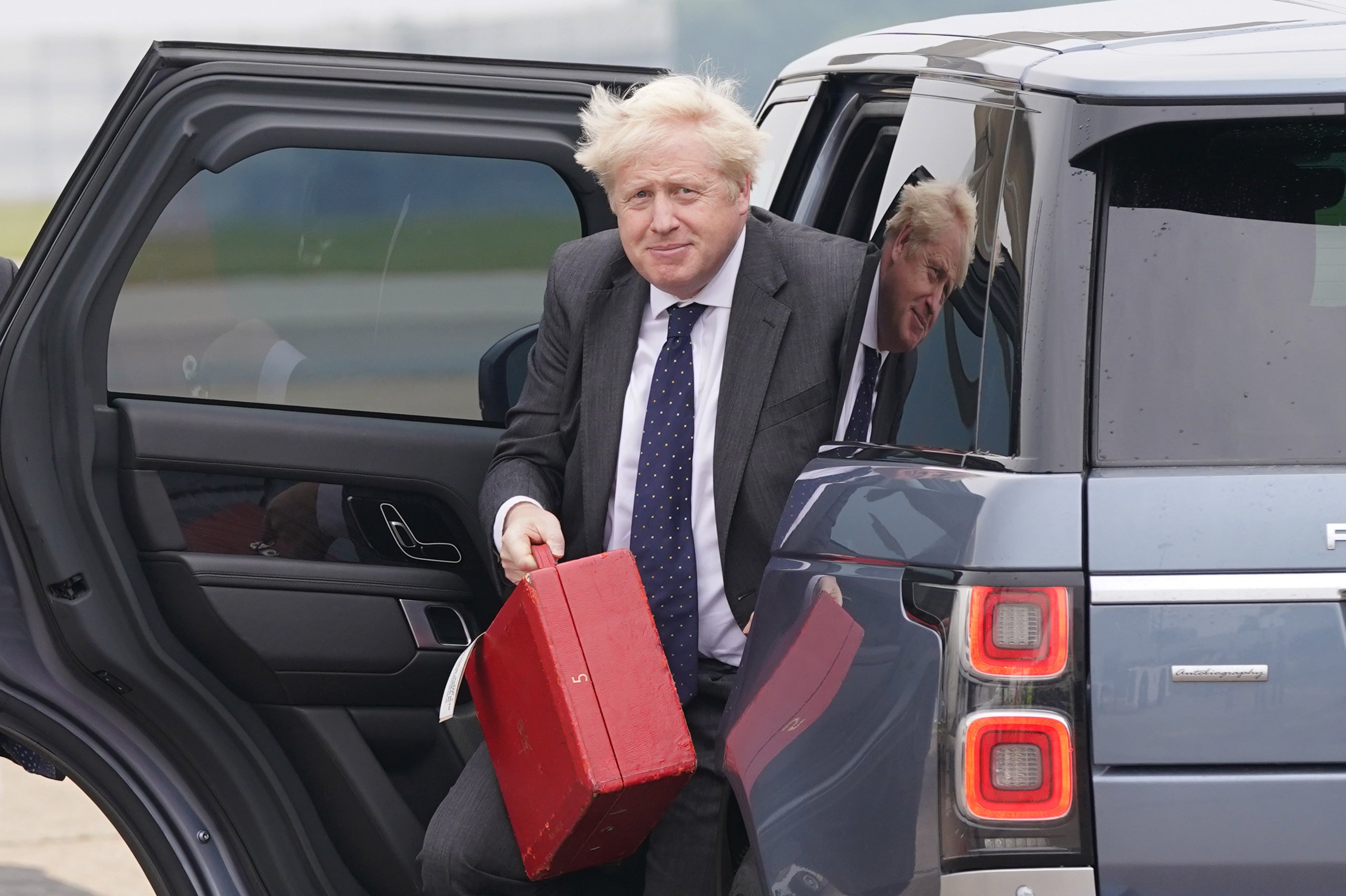Fix ‘broken’ Brexit trade deal to save jobs, cross-party commission tells Boris Johnson
Alarm raised over business ‘barriers’ which ‘cost jobs and money in the UK’ – as public unhappiness confirmed

Your support helps us to tell the story
From reproductive rights to climate change to Big Tech, The Independent is on the ground when the story is developing. Whether it's investigating the financials of Elon Musk's pro-Trump PAC or producing our latest documentary, 'The A Word', which shines a light on the American women fighting for reproductive rights, we know how important it is to parse out the facts from the messaging.
At such a critical moment in US history, we need reporters on the ground. Your donation allows us to keep sending journalists to speak to both sides of the story.
The Independent is trusted by Americans across the entire political spectrum. And unlike many other quality news outlets, we choose not to lock Americans out of our reporting and analysis with paywalls. We believe quality journalism should be available to everyone, paid for by those who can afford it.
Your support makes all the difference.MPs and business leaders are proposing a raft of changes to ease the pain from Boris Johnson’s “broken” Brexit trade deal, in the wake of evidence of public unhappiness with it.
Food export checks must be streamlined, the cost and complexity of obtaining visas eased and a new body set up to protect food standards, their report tells ministers.
The cross-party UK Trade and Business Commission – which gathered evidence from expert witnesses – was set up after the government abolished the Commons committee scrutinising the Brexit fallout.
It says it found “no appetite for widespread deregulation or divergence from EU rules” – long hailed as the key benefit of EU withdrawal by the prime minister and David Frost, his Brexit minister.
Instead, the alarm was raised over the “barriers” faced by businesses losing out to international competitors, the “burden” on small firms and freelance workers” and the risk of “irrevocable damage” to UK farming.
Meanwhile, its polling found that 53 per cent of people think the Christmas Eve deal has created more problems than it has solved – with just 15 per cent thinking it has overall benefits.
“The evidence we’ve heard from dozens of experts and businesses confirms that this deal is broken and will continue to create problems in our supply chain and cost jobs and money in the UK,” Hilary Benn, the Labour MP who jointly leads the commission.
The study’s recommendations include:
* Relaunching and simplifying the Brexit support fund – after it paid out less than one-third of the £20m allocated to it;
* Digitising checks for food exporters – to end a system inferior to “less cumbersome processes” in EU countries;
* Reducing the cost and complexity of visas – with the cost for skilled workers and academics coming to the UK roughly five times higher than competitors; and
* Establishing a new authority to protect food standards in new trade deals – after criticism of government confusion over whether they will be safeguarded.
Mr Benn added: “We’re calling on the government now to work with business and our European neighbours to implement these reasonable improvements to their deal and measures to support UK firms.”
The report comes as pressure grows on ministers to plug gaps in the skeleton deal, with Labour backing a new agreement to end the crisis facing touring musicians.
However, the mooted EU-UK “Partnership Council” has met only once – and the two sides are instead locked in a bitter battle over the Northern Ireland protocol.
The commission is co-led by the head of the Virgin Group, Peter Norris, and its members include figures from Trafalgar Entertainment, the chemical company BASF, and the Northern Ireland Retail Consortium.
Support is provided by the Best for Britain internationalist group, whose chief executive, Naomi Smith, appealed for a new approach from the new-look cabinet.
“The poll shows the British public can see the government’s Brexit deal for what it is – an insufficient and self-sabotaging agreement that is causing significant problems for British businesses, the economy and jobs,” she said.
Join our commenting forum
Join thought-provoking conversations, follow other Independent readers and see their replies
Comments